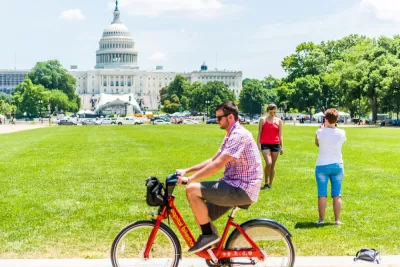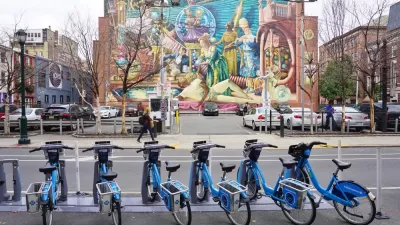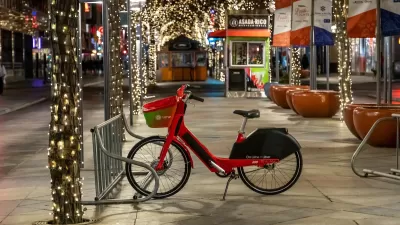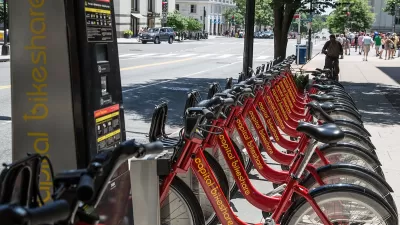New research shows that bike share use has a positive impact on public health, even in less bikeable cities.

According to a new study from Colorado University–likely "the first study to quantify the public health benefits of U.S. bicycle sharing systems"–bike share systems "saved the national healthcare system more than $36 million, despite the fact that there are only about 100,000 shared bikes in the country and many are located in dangerous, car-dependent cities." Bike share users, writes Kea Wilson, "were saved a collective total of 737 'disability adjusted life years,' or years spent living with debilitating health conditions such as cancer, dementia, and ischemic heart disease, thanks to the preventative power of active transportation."
But "the life-saving potential of bike share is limited by the deadly reality of car dominance. The researchers found bike share users had a marginally higher risk of dying in traffic crashes or from pollution-related ailments compared to drivers or transit riders, although they also had a much lower risk of dying from diseases related to physical inactivity than their inactive counterparts." However, no U.S. bike share users were killed between 2007 and 2014, making it a remarkably safe travel mode. David Rojas-Rueda, one of the study's authors, says "the remaining risks of bike share can be mitigated through good Vision Zero planning. But the public health risks associated with sedentary modes such as driving are baked in."
FULL STORY: Study: Bike Share Saves the U.S. $36 Million Public Health Dollars Every Year

Alabama: Trump Terminates Settlements for Black Communities Harmed By Raw Sewage
Trump deemed the landmark civil rights agreement “illegal DEI and environmental justice policy.”

Planetizen Federal Action Tracker
A weekly monitor of how Trump’s orders and actions are impacting planners and planning in America.

How Atlanta Built 7,000 Housing Units in 3 Years
The city’s comprehensive, neighborhood-focused housing strategy focuses on identifying properties and land that can be repurposed for housing and encouraging development in underserved neighborhoods.

In Both Crashes and Crime, Public Transportation is Far Safer than Driving
Contrary to popular assumptions, public transportation has far lower crash and crime rates than automobile travel. For safer communities, improve and encourage transit travel.

Report: Zoning Reforms Should Complement Nashville’s Ambitious Transit Plan
Without reform, restrictive zoning codes will limit the impact of the city’s planned transit expansion and could exclude some of the residents who depend on transit the most.

Judge Orders Release of Frozen IRA, IIJA Funding
The decision is a victory for environmental groups who charged that freezing funds for critical infrastructure and disaster response programs caused “real and irreparable harm” to communities.
Urban Design for Planners 1: Software Tools
This six-course series explores essential urban design concepts using open source software and equips planners with the tools they need to participate fully in the urban design process.
Planning for Universal Design
Learn the tools for implementing Universal Design in planning regulations.
Caltrans
Smith Gee Studio
Institute for Housing and Urban Development Studies (IHS)
City of Grandview
Harvard GSD Executive Education
Toledo-Lucas County Plan Commissions
Salt Lake City
NYU Wagner Graduate School of Public Service





























